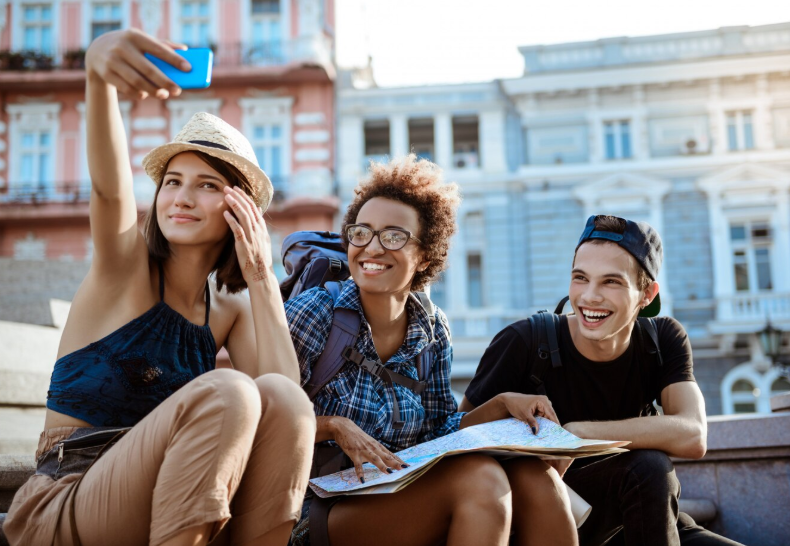The Rise of Inclusive Travel Experiences Across Europe
Europe has long been a top destination for global travelers — known for its history, culture, and rich diversity. But in recent years, the continent has seen a marked shift in how tourism is being approached. Today’s travelers aren’t just looking for iconic landmarks; they’re seeking experiences that reflect their identities, values, and needs. From accessible accommodations to LGBTQ+-friendly tours and culturally sensitive experiences, inclusive travel is reshaping the European tourism landscape.
What Is Inclusive Travel?
Inclusive travel refers to tourism services and experiences that accommodate all people — regardless of physical ability, age, gender identity, sexual orientation, religion, ethnicity, or socioeconomic status. The goal is to ensure that every traveler feels safe, respected, and welcome wherever they go. It’s more than accessibility; it’s about empathy and representation throughout the entire travel experience.
Why Inclusive Travel Is Gaining Momentum
The rise of inclusive travel is no accident — it reflects a broader cultural evolution. Social movements advocating for equity, visibility, and human rights have translated into economic influence. According to various reports, travelers from marginalized communities are spending billions annually, prompting destinations and service providers to adapt.
Additionally, millennials and Gen Z — who now make up a large portion of the travel market — tend to prioritize ethical and inclusive brands. Businesses that fail to acknowledge this shift risk becoming obsolete in the eyes of modern travelers.
Europe Leading the Way in Inclusivity
Many European cities are taking significant strides to make their tourism infrastructure more inclusive. From legislation to local initiatives, here are a few ways this shift is unfolding:
- Accessible Public Transport: Cities like Amsterdam, Berlin, and Barcelona have upgraded public transportation systems with elevators, low-floor trams, and tactile guidance paths for the visually impaired.
- LGBTQ+-Friendly Destinations: Cities like Madrid, Copenhagen, and Lisbon are celebrated for their open-mindedness and thriving LGBTQ+ communities. They offer pride festivals, inclusive nightlife, and welcoming accommodations.
- Cultural Representation: Museums and galleries across Europe are increasingly showcasing diverse histories and artists from underrepresented communities, fostering a more accurate and inclusive narrative.
- Language Services: More tourist centers and attractions are providing multilingual support, signage, and translation services to ensure non-native speakers can navigate and enjoy their visit with ease.
Tour Operators Embracing Inclusivity
Tour operators are responding to demand with tailored experiences. Some offer disability-friendly tours with specialized guides and transportation, while others create curated trips for BIPOC travelers to connect with local cultures and diasporic communities. These efforts not only promote inclusivity but also foster meaningful connections that go beyond surface-level sightseeing.
For example, platforms like Wheel the World and Travel For All cater specifically to travelers with disabilities, while others like Contiki and Intrepid Travel now offer LGBTQ+-focused group travel with trained staff and safe spaces.
Accommodations That Welcome Everyone
Hotels and vacation rentals across Europe are recognizing the importance of inclusive hospitality. More properties are obtaining accessibility certifications, offering gender-neutral restrooms, and training staff in diversity and sensitivity practices. Online platforms are also evolving, allowing travelers to filter for LGBTQ+-friendly listings or properties that are wheelchair-accessible.
Challenges Still Remain
Despite progress, the journey toward truly inclusive travel is ongoing. Inconsistent standards between countries, lack of awareness among providers, and limited representation in marketing continue to be challenges. Many travelers still face microaggressions or feel unsafe in unfamiliar regions due to their identity or background.
To overcome this, it’s essential for the travel industry to invest in education, training, and authentic partnerships with underrepresented communities. Listening to traveler feedback and being transparent about efforts toward inclusivity is no longer optional — it’s expected.
How Translation Services Support Inclusive Travel
Language is one of the biggest barriers in travel, and inclusive tourism cannot exist without clear, accessible communication. Professional translation and localization services play a critical role in this transformation by ensuring that travel guides, safety information, booking platforms, and cultural content are accessible to everyone, regardless of their native tongue.
Companies that prioritize multilingual support demonstrate a deep respect for their guests’ experiences. Whether it’s through translated signage, accessible websites, or multilingual tour guides, bridging the language gap enhances comfort and empowers travelers to fully enjoy their journey.
Learning New Languages as an Expat: Strategies for Quick Success
While inclusive services make travel easier, learning the local language as an expat offers immeasurable benefits — both personally and professionally. Here are a few quick strategies to fast-track your language learning journey:
- Immerse Yourself: Surround yourself with the language — listen to local radio, watch TV, and read signs and menus.
- Use Technology: Leverage language apps like Duolingo, Tandem, or HelloTalk to build vocabulary and practice pronunciation.
- Take Local Classes: Enroll in group or one-on-one language classes taught by native speakers in your community.
- Practice Daily: Make it a habit to learn and use new words every day. Repetition and consistency are key.
- Engage with Locals: Don’t be afraid to speak, even if you make mistakes. Locals often appreciate the effort and will help you improve.
Learning the language opens doors to deeper relationships, career opportunities, and a greater sense of belonging in your new home.
Stay Connected for More Travel and Lifestyle Inspiration. For more insights into travel, culture, and lifestyle tips, follow me on @salvadorordorica. If you’re seeking professional translation and localization services to enhance your global ventures, visit The Spanish Group — your trusted partner in bridging cultures worldwide.



